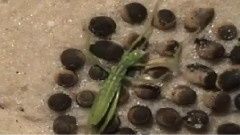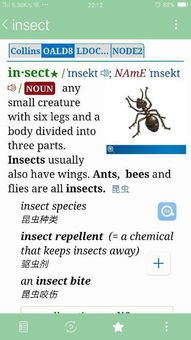
Newborn Insect Bite: A Comprehensive Guide
Newborn insect bites can be a common concern for parents and caregivers. Understanding the nature of these bites, their symptoms, and how to manage them is crucial for ensuring the comfort and health of the affected individual. In this article, we will delve into the details of newborn insect bites, covering various aspects such as the types of insects that commonly bite newborns, the symptoms to look out for, and the best practices for treatment and prevention.
Types of Insects That Bite Newborns

Several insects are known to bite newborns, each with its own characteristics and potential risks. Here are some of the most common ones:
| Insect | Description | Common Biting Areas |
|---|---|---|
| Bed Bugs | Small, flat, brown insects that feed on human blood. | Bed sheets, mattresses, and furniture. |
| Mosquitoes | Small, flying insects that can transmit diseases. | Armpits, legs, and feet. |
| Flies | Small, flying insects that can carry bacteria. | Any exposed skin area. |
| Ants | Small insects that feed on a variety of foods. | Hands, feet, and legs. |
Recognizing the Symptoms

Identifying the symptoms of a newborn insect bite is essential for prompt treatment and care. Common symptoms include:
-
Pain or itching at the bite site
-
Redness and swelling around the bite
-
Small, raised bumps or blisters
-
In some cases, a rash or allergic reaction
It’s important to note that some newborns may not exhibit immediate symptoms, and the bite may not be noticeable until a few hours or even days later.
Treatment and Care

When dealing with a newborn insect bite, it’s crucial to follow proper treatment and care to alleviate discomfort and prevent infection. Here are some recommended steps:
-
Clean the bite area with mild soap and water to prevent infection.
-
Apply a cool, wet compress to reduce swelling and itching.
-
Use over-the-counter antihistamines or hydrocortisone cream to relieve itching and inflammation.
-
Keep the affected area clean and dry to prevent infection.
In cases of severe allergic reactions or widespread symptoms, it’s important to seek medical attention immediately.
Prevention Tips
Preventing newborn insect bites is key to ensuring a comfortable and healthy environment for your little one. Here are some effective prevention tips:
-
Keep the living area clean and free of clutter, as insects thrive in dusty and cluttered environments.
-
Use insect repellents specifically formulated for newborns, following the manufacturer’s instructions.
-
Inspect cribs, beds, and furniture for signs of insects, such as bed bugs or ants.
-
Keep windows and doors closed, especially during peak insect activity times.
-
Consider using mosquito netting over cribs and playpens.
Newborn insect bites can be a source of concern for parents and caregivers. However, by understanding the types of insects that commonly bite newborns, recognizing the symptoms, and following proper treatment and prevention measures, you can help ensure the comfort and health of your little one.






